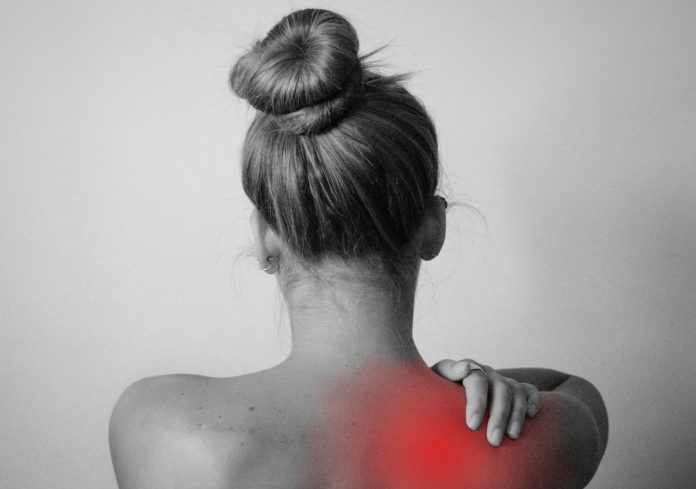TABLE OF CONTENTS
By Frederick Song, MD
Staying active by participating in sports like tennis or pickleball is good for your overall health.
However, sports and other activities that involve repetitive actions or sudden movements that can lead to falls, can often result in shoulder injuries.
If you experience shoulder pain, don’t just play through it. Prompt diagnosis and treatment can help prevent further damage.
At Penn Medicine Princeton Health, orthopaedic doctors offer a wide range of effective treatment options for shoulder injuries from physical therapy to minimally invasive surgery.
A Complex Joint
The shoulder is a complex joint made up of the humerus, scapula, and clavicle and affords the greatest motion of any joint in the body. It comprises more than 30 supporting muscles and ligaments, including the rotator cuff.
The rotator cuff acts as a dynamic stabilizer that maintains the humeral head (ball) in the glenoid (socket) and enables you to raise and rotate your arm.
Each year, millions of people of all ages go to the doctor for shoulder problems, according to the American Academy of Orthopaedic Surgeons (AAOS).
Common Injuries
Shoulder injuries more often involve the soft tissues that make up the shoulder rather than the bones, though fractures do occur with more violent impacts. Some of the most common shoulder injuries include:
- Rotator cuff tears. Most rotator cuff tears start out slowly and progress to partial or full tears over time. This degeneration occurs naturally with age and can also be associated with repetitive overhead use such as with sports like tennis, baseball and swimming. Less often, rotator cuff tears can be an acute injury caused by overstretching or lifting something too heavy.
- Dislocation. Because the shoulder joint is the body’s most mobile joint, it is also the
most common to dislocate, meaning the ball of the joint pops out of the socket.
Shoulder dislocations are often a result of a fall or other physical trauma. If you
dislocate your shoulder once, you are at greater risk for repeat dislocations, a condition
called chronic shoulder instability, especially if you are younger. - Impingement. Shoulder impingement occurs when the tendons in the shoulder become inflamed and rub against the undersurface of the scapula bone called the acromion. This repetitive rubbing can lead to tendonitis and inflammation.
Warning Signs
In general, pain, especially pain at night, is the most common sign of a chronic shoulder injury.
Other signs of a chronic shoulder injury include:
- Stiffness and inability to rotate your arm normally.
- Inability to raise your arm.
- Feeling that the shoulder could pop out or slide out of the socket.
- Lack of strength in the shoulder that inhibits daily activities.
Signs of an acute shoulder injury, include:
- Shoulder appears deformed.
- Intense pain in the arm or shoulder.
- Shoulder cannot be moved or used.
- Shoulder suddenly swells.
- Arm or hand is numb or weak.
- Arm cannot be lifted.
If you experience an acute shoulder injury, seek immediate medical attention. As the AAOS notes, any discomfort that does not improve with rest, ice and anti-inflammatory medications is a reason to see a shoulder specialist.
Diagnosis and Treatment
Most shoulder injuries can be diagnosed with a history of the patient’s issue coupled with a
physical exam and imaging tests such as X-rays and MRI.
Treatment may include physical therapy, cortisone injections and activity modification. Often treatment does not involve surgery, but if it does, most procedures at Princeton Health — even shoulder replacements — are usually performed using minimally invasive techniques that result in less discomfort following surgery and quicker healing. Most patients go home the same day as their procedure.
Prevention
Though some wear and tear to the shoulder is inevitable as you age, there are a few things you can do to keep your shoulders healthy and help prevent injury.
- Warm up. No matter if you’re headed to the pickleball court or to the swimming pool,
always take time to warm up. Do some full body movements such as jumping jacks or
jogging in place followed by some gentle stretching. - Include a regular muscle-strengthening routine in your exercise regime. You don’t have
to lift heavy weights to get the benefits of strength training. Even light weights can help keep your muscles strong and your joints in balance. - Work on balance and strengthening your core. By maintaining good balance and a
strong core, you can help reduce the likelihood of falling and injuring your shoulder. - For young athletes especially, participate in a variety of sports throughout the year rather than focusing on one specific sport and limit the number of teams you play on to prevent overuse injuries.
- Practice safe lifting techniques. When lifting heavy objects, bend at your knees and keep your back straight. Lift with your legs and avoid twisting while lifting.
- Take breaks. If your job, sport or hobby involves repeated overhead motion, be sure to
take regular breaks to rest and stretch your shoulders.
Too often, people ignore shoulder pain until it becomes unbearable or leads to more serious injury. However, the earlier it is diagnosed, the easier it is to treat. If you have shoulder pain, don’t wait to see a doctor. Prompt medical treatment can help you return you to the activities you love without the pain.
To find an orthopaedic physician affiliated with Penn Medicine Princeton Health, call 1 (888) 742-7496 or visit www.princetonhcs.org/directory.
Frederick Song, MD, is a board certified orthopaedic surgeon on the medical staff of Penn
Medicine Princeton Health.


